Conflicts of Laws: Blocking Statutes and Antiboycott
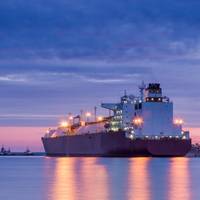
This article will focus on conflicts of laws stemming from the EU Blocking Statute and U.S. antiboycott law, both of which are intended to prevent parties from complying with a disfavored sanctions regime. The article will highlight some of the inherent conflicts in dealing with multiple conflicting sanctions regimes. It follows our comprehensive summary of sanctions and shipping, which covered several of the issues herein in some detail.Antiboycott law: in generalAntiboycott law is essentially the inverse of sanctions law.
Responder Immunity: The Means to Protect the Salvor in “Bet the Company” Responses
The specter of liability beyond the limits of applicable insurance for the salvor’s liability to both its contractual partner and third parties continues to haunt the American Salvage Association’s members. Hence, the efforts since 2011 to obtain broad based immunity from claims beyond the patch work of statute, judge made law and contractual risk shifting terms. The exposure on certain projects to the prospect of “you bet the company claims” has caused prospective bidders with the requisite skills, technical expertise, and physical resources to decline opportunities to participate in major but high-risk projects. Responder immunity…
Five Common Mistakes in Maritime Contracts
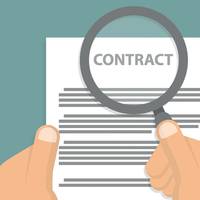
“An ounce of prevention is worth a pound of cure.” – Henry de Bracton, DeLegibus, ~1240Often clients or prospective clients come to me with a commercial contract issue perched on the precipice of full-blown litigation or arbitration. When I ask to see the contract, often times I see errors in drafting that either (1) give rise to the problem before me or (2) could create a bigger problem for the client in the future.The risk of drafting error is higher for Europeans looking to contract with American companies.
What to Expect From Hanjin Fallout?
South Korea’s biggest shipping company, Hanjin Shipping Co Ltd filed for court receivership in South Korea on Wednesday 31 August 2016 after losing the support of its banks, setting the stage for what has now become a motley situation. Ince & Co's Knowledge Bank takes a look. Some jurisdictions are refusing to allow Hanjin’s vessels to berth at their ports (on concerns that Hanjin cannot pay the port fees) while some of Hanjin’s vessels have instructions not to berth (for fear of ship arrest). The risk of ship arrest is a real one. Hanjin Rome was arrested in the port of Singapore last week. This arrest is likely to be the first of many more…
Brexit Impact on Shipping and Sea Trade in UK
Eversheds International says that UK trade would clearly be impacted by the Brexit vote. "We saw an immediate effect on currency and share prices, although there are signs that the market is settling down after the initial post-vote furore," says a report by Eversheds. In terms of longer term impact, there are some matters which are already tolerably clear, for example that any changes to the cost of trade with the EU are likely to affect freight volumes at British ports. However, the precise nature and extent of the effect on UK trade will depend entirely on the form of relationship which is ultimately agreed both with the EU and with other trading partners.
Brexit: The Implications for Shipping
“Brexit” is the notion that the United Kingdom would leave the European Union. What would be the impact of Brexit on the shipping sector? Dr Vincent Power, EU & Competition Partner, looks at impacts of Brexit on the shipping sector. Shipping is extremely important to the EU. In 2014, more than 51.5% of EU external freight trade by value was transported by sea. More than 400 million people are transported by sea from EU ports annually. The EU’s 22 coastal Member States have more than 1,200 seaports offering direct employment to around 110,000 people and providing indirect support to around three million more. Almost 90 per cent of the EU’s external trade by volume is facilitated by seaports, as are 40 per cent of freight exchanges between member states.
Who Should Pay to Prevent Further Damage of Stricken Ships?
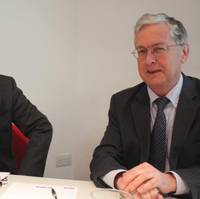
Who – shipowner or insurer – should bear the costs of any action taken to prevent a stricken vessel from getting into further costly difficulties? A seminar organized jointly by the Association of Average Adjusters and the International Underwriting Association heard that the market had long wrestled with the arguments, and that considerable uncertainties remain. The London event was given an outline of the main provisions of what could count as ‘sue and labor’ – a clause in marine policies under which the assured can recover reasonable expenses for minimizing or averting an insured loss.
DGS Marine Orgainses 1st BE&O P&I Seminar
DGS Marine, a leading global P&I management provider and exclusive manager for the British European and Overseas (BE&O) P&I facility, has held the first BE&O P&I Seminar in Limassol, Cyprus. Hosted by Captain Andreas Efthimiades, Head of DGS Marine’s Cyprus office and Director of Claims, the seminar was attended by delegates from Cyprus’ shipping and insurance community, with the goal of providing them with a better understanding of some of the most topical and important P&I-related issues. The agenda for the day covered an array of challenging topics, including charter party disputes and NYPE Clause 8, the future of General Average, issues surrounding the Commencement of Laytime and the challenges of securing ‘Places of Refuge’ for vessels in distress.
AMS Presents 2014 Safety Awards
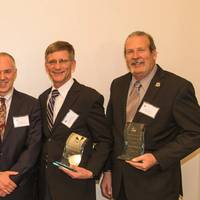
Nonprofit maritime trade association American Maritime Safety (AMS) held its 25th Annual Membership Meeting at The Yale Club of New York City on Thursday, October 23, honoring five member companies with Maritime Safety Awards in recognition of their dedication to promoting safe vessel navigation, preserving the marine environment and for their proactive efforts toward achieving safe maritime working practices. Bouchard Transportation Company, Inc. received the Tug and Barge Safety Award…
EPA Revises Hydraulic Fracturing Guidance
Today, the U.S. Environmental Protection Agency (EPA) released revised underground injection control (UIC) program permitting guidance for wells that use diesel fuels during hydraulic fracturing activities. EPA developed the guidance to clarify how companies can comply with a law passed by Congress in 2005, which exempted hydraulic fracturing operations from the requirement to obtain a UIC permit, except in cases where diesel fuel is used as a fracturing fluid. EPA is issuing the guidance alongside an interpretive memorandum, which clarifies that class II UIC requirements apply to hydraulic fracturing activities using diesel fuels, and defines the statutory term diesel fuel by reference to five chemical abstract services registry numbers.
Slow-Steaming Through a Legal & Insurance Minefield

What’s the problem? On one side the owner has an obligation to follow the charterer’s slow-steaming instructions under the charterparty yet on the other the owner has the usually implied obligation under the Bill of Lading to proceed with due dispatch. Due dispatch means the most direct route at the fastest speed. There is legal authority that an unreasonable delay is a deviation. A deviation in this respect is a departure from the contractually agreed voyage that deprives the carrier of the defences and rights of limitation that are usually available under The Hague or Hague Visby Rules.
Charter Party Laytime Definitions Updated
Uncertainties in laytime definitions currently used in charter parties have been addressed in the latest Laytime Definitions of Charter Parties 2013, created by a shipping industry working group consisting of BIMCO, the Baltic Exchange, Comitė Maritime International (CMI) and the Federation of National Associations of Shipbrokers and Agents (FONASBA). The new document sets out statements of meaning of words and phrases commonly used in the context of laytime and reflects contemporary market understanding based on the current state of English law. Separate meanings have been given to the different formulations of phrases such as “Weather Working” day…
UK Statutory Residence Test Does Away with Grey Areas
International accountant and shipping adviser Moore Stephens says the introduction by the UK of a statutory residence test will bring much greater certainty to an area previously decided largely on the basis of case law and government practice. The UK is introducing the statutory residence test with effect from 6 April, 2013. Gill Smith, a tax partner with Moore Stephens, explains, “At present, there is no statutory definition of residence, but rather case law and HMRC practice. Under the new test, individuals will always be resident if they spend 183 days in the UK. As is the case now, a day counts if the individual is in the UK at midnight. Automatic residence is also achieved if individuals are working in the UK full-time or, broadly, have their only home there.
VOYLAYRULES Get Makeover
The standard charter party laytime definitions known as 'VOYLAYRULES' are being updated to reflect developments in case law & commercial practice. VOYLAYRULES, which are jointly produced by BIMCO, FONASBA, INTERCARGO and CMI, last published in 1993, provide a set of standard definitions for commonly used charter party laytime terms which can be incorporated in whole or part into charter parties. Their purpose is to help reduce charter party disputes on matters of interpretation of laytime provisions. The project to update VOYLAYRULES is being carried out by a small drafting team of representatives from each of the sponsoring organisations with the support of the Baltic Exchange (who publish a similar set of charter party definitions in their Baltic Code).
5 ‘Gotchas’ of Marine Insurance

“Gotchas” are pitfalls, catches, bait and land mines – a kicker, snare or snag. They are surprises and, in the world of insurance, surprises are rarely a good thing. ‘Gotchas’ can be caused by different things. It may be the age of the coverage forms; it may be case law has moved on beyond the policy’s intent. Or, it may be there is a ‘disconnect’ between policy wording and current business practices. Sometimes, these things occur simply because some insurance contracts are impenetrable. Insurance policies are a distinctly difficult set of documents to understand.
INTERTANKO launches PhD Fellowship
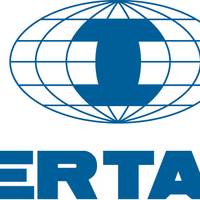
INTERTANKO launches PhD Fellowship in Marine Pollution Law at World Maritime University. INTERTANKO is to fund a three-year PhD study into the emerging law and policy on criminal liability for marine pollution and the effects of this on seafarers. INTERTANKO will be working with the World Maritime University (WMU) and with the individual student chosen to undertake this important work. INTERTANKO’s Council has identified criminalisation as a high priority item for the INTERTANKO Work Plan.
FMC: OTI may not use unlicensed, unbonded agents
The Federal Maritime Commission (FMC) issued an order stating that, under the Shipping Act of 1984 and its implementing regulations, a licensed ocean transportation intermediary (OTI) may not use unlicensed and unbonded agents to provide non-vessel-operating common carrier (NVOCC) and ocean freight forwarder services to the public. The OTI had petitioned for a declaratory order allowing such an exception, citing the evolving business conditions. The majority of the Commission denied the petition, noting that it is not aware of any legislative history or case law that would indicate the Congress intended to distinguish between persons would act as OTIs (and must be licensed and bonded) and persons who provide OTI services (and could avoid the license and bonding requirements).
BIMCO offers new Standard Bunker Contract
When BIMCO published the "Fuelcon" Standard Marine Fuels Purchasing Contract in 1995, it received only a modest welcome from the bunker industry. Although a standard contract of this type had been long-awaited by those involved in the marine fuels sector, "Fuelcon" was not widely adopted. The general feeling in the industry was that BIMCO, in an attempt to redress the balance of often onerous suppliers' terms and conditions then in general usage, had produced a standard form of contract that was too biased towards the buyers. Although failing to achieve dominance in the market, the "Fuelcon" initiative successfully raised awareness in the bunker sector of the need for a set of standard terms and conditions acceptable both to buyers and sellers.
AKD Warns Shipowners on Dutch Ship Arrest Guarantees
Shipowners who find their vessel has been arrested in the Netherlands need to be careful when putting up security to get the ship released quickly. Recent case law shows that even if the owner has a strong case in rejecting the claim, it may still have to wait until the very final judgement before being able to reduce the security. In the worst case scenario this may take several years, if conditions for security reduction are not specifically agreed at the outset. Netherlands is of course well known as a ship arrest paradise. To prevent unnecessary costs and delays, shipowners have the option of providing security in exchange for an arrested vessel’s release. This is usually done on Rotterdam Guarantee Form 2000.
Odds are Improving for Riverboat Casino Employees Seeking Jones Act Seaman Status
In 1991, casinos were legalized in the state of Louisiana through the passage of the Louisiana Gaming Act. Riverboat casinos have been operational in the state since 1993. The Louisiana Gaming Act allows for fifteen riverboat licenses with mandatory Coast Guard certification of the vessels. The Act allows for both dockside and riverboat gaming. Five other states have riverboat casino gambling: Iowa, Illinois, Indiana, Missouri and Mississippi. Although riverboat gaming has gained legal recognition in these states, riverboat casino employees have not had the same success in gaining seaman status under the Jones Act. The Jones Act (46 U.S.C. sec.
FMC Allows Amicus Briefs
The Federal Maritime Commission (FMC) issued an Order allowing non-parties to file amicus curiae briefs in an action involving Sea-Land Service, Inc. In doing so, the Commission has overruled past Commission case law addressing acceptance of amicus briefs. The Commission will retain authority to exercise its discretion to allow or deny filing of amicus briefs, but will more frequently allow filing of such briefs that are timely submitted, that set forth their interest in the proceeding, and that sufficiently explain why their participation as an amicus curiae would be desirable. Docket No. 98-0 Source: HK Law






